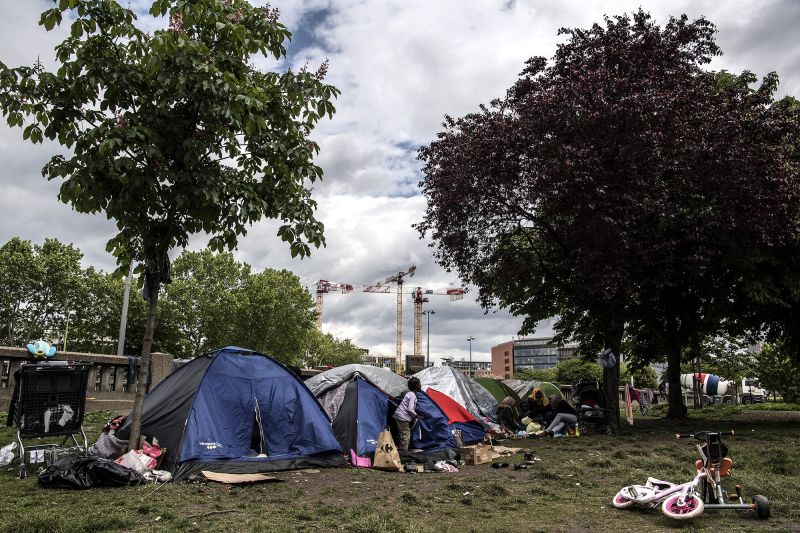Nearly 47 child migrants a day vanished in Europe since 2021, research reveals


Around 47 children vanish every day in Europe, according to new research by cross-border journalism collective Lost in Europe showing more than 50,000 child migrants went missing after arrival over the past three years.
Data requested from 31 European countries, including Austria, Germany, and Italy, show at least 51,433 unaccompanied refugee minors were registered as missing between 2021 and the end of 2023. The actual figure could be higher due to inadequate documentation of cases, with some countries not collecting data on such children at all.
The research builds on findings released in 2021 that revealed at least 18,000 child migrants disappeared upon arrival in Europe in the three years from January 2018 to December 2020.
Aagje Ieven, secretary general for Missing Children Europe, a federation bringing together grassroots organizations across the continent, said the increased number of reported cases revealed by the research serves as a sharp reminder of the many instances yet to be uncovered.
“More of the iceberg is becoming visible, and that is a positive evolution,” she said, comparing the unreported cases to the bulk of the ice below the water’s surface. Out of 31 contacted countries, Lost in Europe received 20 responses, with seven lacking required data and 11 not responding — representing an improvement from 12 responses overall in 2021. Lost in Europe was able to find the data needed for two of the countries that did not respond, Italy and Slovakia, in official reports.
Italy and Austria lead in registrations of missing unaccompanied minors, with 22,899 and 20,077 cases respectively, followed by Belgium, Germany and Switzerland with between roughly 2,200 and 1,200 reported cases.
The fate of missing unaccompanied migrant children is worrying, Ieven said. “They are at a higher risk of being targeted by traffickers, if not already exploited by smugglers to pay off debts, or because they hold control over their loved ones or their passports.”
Multiple factors contribute to the disappearance of migrant children. There are concerns that some may have fallen prey to human traffickers or been subjected to exploitation in the sex industry. Others disappear voluntarily because they do not trust the authorities or to escape unsafe reception conditions.
Many move to other countries to reunite with relatives or friends without registering it, Ieven said.
Ieven pointed out that the scarcity of opportunities for minors makes them vulnerable to exploitation, alongside the numerous traumas they endure prior to reaching Europe. A 2022 Ghent University study found that 84% of children experienced physical violence during their migration to Europe, with over 90% witnessing it.
Children make up around 40% of the world’s displaced people, according to the United Nations. While fleeing wars and conflicts, thousands of children find themselves separated from their families and relatives, and others travel alone, sent ahead by parents seeking to ensure their survival.
Afghanistan was the country of origin for at least one in three unaccompanied minors who went missing in Europe between 2021 and 2023. The number of Afghan children arriving there increased following the Taliban takeover of power in August 2021.
Other significant countries of origin include Syria, Tunisia, Egypt, and Morocco, according to the data collected by Lost in Europe.
Patricia Durr, chief executive of ECPAT UK, a children’s rights organization, emphasized in comments to Lost in Europe that the situation represents a crisis in child protection, “exacerbated by punitive border policies and the lack of safe and legal routes for children in Europe to move between member states safely.”
An Austrian Ministry of the Interior spokesperson noted that the substantial influx of asylum applications from unaccompanied minor refugees presents specific challenges regarding legal representation and reception, Lost in Europe said.
Patricia Durr raised further concerns about the impact that the EU’s new Pact on Migration and Asylum, approved by the European Parliament in April 2024, will have on children on the move. “Measures such as including children within detention for screening purposes is a clear breach of their rights under international law and will increase their vulnerability to going missing, abuse and trafficking,” she said.
According to Ieven, registering migrant children and acknowledging their rights, including access to education, is crucial for their safety. “What will keep them safe is understanding that there is a future for them in the system, rather than outside of it,” she said.
Lost in Europe is a not-for-profit cross-border journalism project investigating the disappearance of child migrants in Europe.











